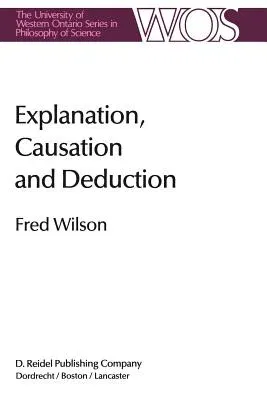Fred Wilson
(Author)Explanation, Causation and Deduction (Softcover Reprint of the Original 1st 1985)Paperback - Softcover Reprint of the Original 1st 1985, 26 September 2011

Qty
1
Turbo
Ships in 2 - 3 days
In Stock
Free Delivery
Cash on Delivery
15 Days
Free Returns
Secure Checkout
Part of Series
The Western Ontario Philosophy of Science
Part of Series
Western Ontario Series in Philosophy of Science
Print Length
400 pages
Language
English
Publisher
Springer
Date Published
26 Sep 2011
ISBN-10
9401088187
ISBN-13
9789401088183
Description
Product Details
Author:
Book Edition:
Softcover Reprint of the Original 1st 1985
Book Format:
Paperback
Country of Origin:
NL
Date Published:
26 September 2011
Dimensions:
22.86 x
15.24 x
2.13 cm
ISBN-10:
9401088187
ISBN-13:
9789401088183
Language:
English
Location:
Dordrecht
Pages:
400
Publisher:
Weight:
544.31 gm

